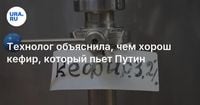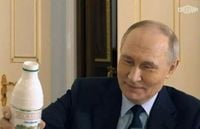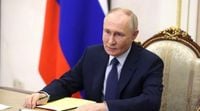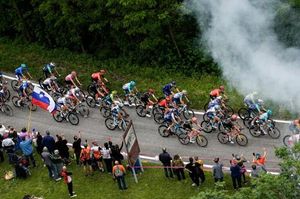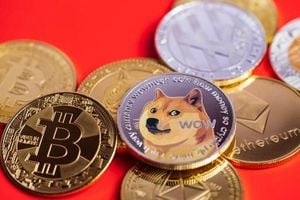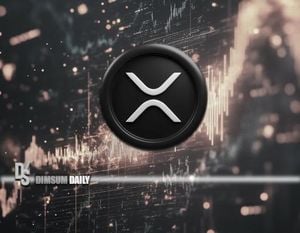In a surprising turn of events, the release of the documentary film "Russia. Kremlin. Putin. 25 Years" featuring Russian President Vladimir Putin has sparked a nationwide frenzy for kefir, the fermented milk drink that the president shared with journalists during the film's production. According to reports from Komsolmolskaya Pravda, the kefir, priced at approximately 140-150 rubles, was readily available in supermarkets across Russia on Saturday, May 3, 2025. However, by noon on May 5, it had vanished from store shelves, leaving consumers scrambling to find the popular beverage.
The documentary aired on the state-run channel, Russia, and showcased not only Putin's reflections on his 25 years in power but also offered a rare glimpse into his personal life, including a tour of his kitchen in the Kremlin apartment. This intimate portrayal appears to have resonated deeply with the public, leading to an unexpected surge in kefir sales.
On May 6, Dmitry Peskov, the president's press secretary, addressed the media regarding the kefir craze. He emphasized that the excitement surrounding the drink is less about the kefir itself and more about a broader phenomenon of social cohesion and the high popularity of the president. Peskov stated, "The excitement is not about the kefir but rather a manifestation of unity within society around the president." His comments highlight the significance of the public's attention to Putin and suggest that the kefir frenzy reflects a deeper connection between the leader and the populace, as reported by TASS.
In the documentary, which marks the anniversary of Putin's initial election to the presidency, viewers are treated to a mix of documentary footage and discussions about domestic and foreign policy. The film's authors made a conscious effort to humanize the Russian leader, showcasing aspects of his daily life that have remained largely hidden from public view.
The kefir incident serves as a fascinating case study in how media portrayals can influence public behavior and sentiment. Following the documentary's release, many citizens began to associate the drink with the president, further amplifying its desirability. This phenomenon raises questions about the role of media in shaping public perception and the extent to which individuals are willing to engage in consumer behavior driven by celebrity influence.
The kefir craze has not only sparked interest in the beverage itself but has also reignited discussions about Putin's leadership style and his relationship with the Russian people. As consumers flock to stores to purchase the same kefir that the president enjoyed, it becomes evident that the drink has transcended its status as a simple dairy product and has become a symbol of national pride and loyalty.
As the kefir continues to fly off the shelves, it is clear that the documentary has had a significant impact on public sentiment. The excitement generated by the film and the subsequent kefir rush reflects a moment of unity among citizens, who are seemingly eager to connect with their leader on a personal level.
In conclusion, the kefir phenomenon illustrates the powerful interplay between media representations and public behavior in contemporary Russia. As the nation grapples with its identity and leadership, the response to Putin's documentary and the subsequent kefir frenzy serves as a reminder of the complexities of public sentiment and the enduring influence of political figures on everyday life.
